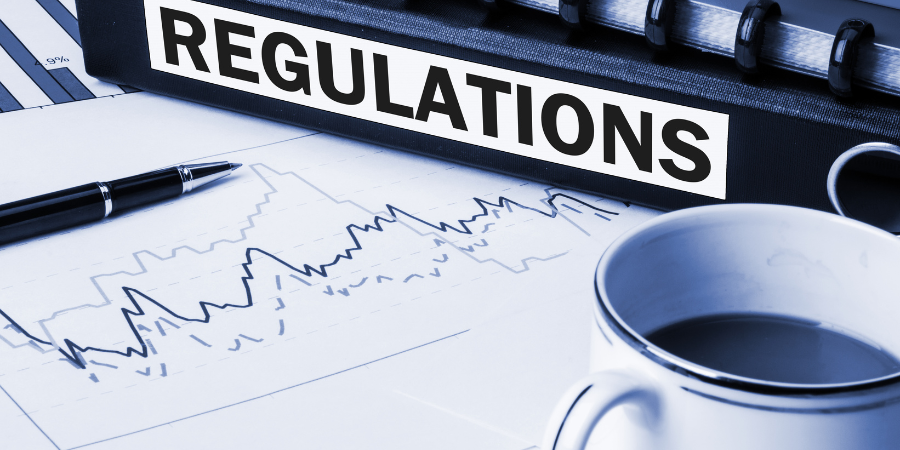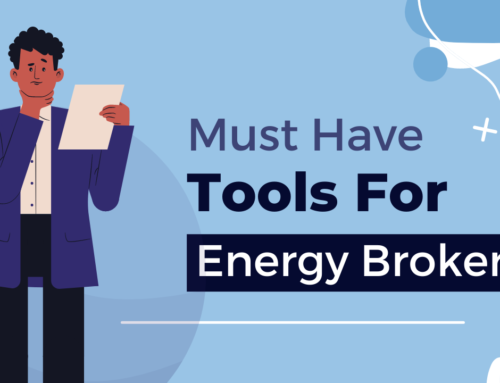There are many energy broker regulations in states with deregulated energy. In fact, when you look at the history of energy deregulation, you will notice that energy broker regulations and requirements have evolved with the marketplace. In this article, we will explore these regulations, the regulatory bodies that uphold these laws, and how energy broker regulations have affected the retail energy markets.
Who Regulates Energy Brokers And Why
In each deregulated energy state, energy brokers are regulated by the state’s Public Utility Commission, Board of Public Utilities, or other governing agency responsible for regulating the electricity and natural gas industries. In most states, these regulators require energy brokers to go through a heavy vetting and application process in order to receive their energy broker license. Without this license, brokers are unable to transact business within the deregulated territory.
When energy deregulation first began, most energy brokers were not regulated. In fact, it was the suppliers that faced heavy scrutiny and regulation. With time, however, state regulators realized that the brokers had a lot of influence over customer transactions and should also be regulated like energy suppliers. All regulation in these states is for the protection and benefit of consumers. Each law and guideline is in place to ensure that consumers are not taken advantage of by unscrupulous brokers or energy suppliers.
What Are Some Energy Broker Regulations
First, in order to understand some of the regulations in place for energy brokerage companies, you should understand the different types of energy brokers. There are brokers that focus on commercial and industrial energy customers, brokers that focus on residential markets, and some brokers that sell energy to both. In most states, regulations are more strict for residential energy brokers since residential customers are in a protected consumer class. Although these laws differ drastically from state to state, here are some of the typical energy broker regulations:
Price Disclosure
Most state regulators would like energy brokers to be clear about the components existing in the supplier price that they are selling. For example, in some states, there is a special tax placed on electricity rates, so it is important that the broker disclose whether or not the price he is quoting is inclusive or not inclusive of tax.
Marketing Materials And Procedures
Another common energy broker law is related to how brokers are able to market themselves to consumers. In most jurisdictions, it is expressly prohibited that a broker represents himself as the local utility company. In fact, most broker license applications require examples of the broker’s marketing materials to ensure they are not misleading whatsoever.
Energy Broker Commissions
Another highly regulated aspect of the energy broker industry is how energy brokers are compensated. In order for an energy broker to add margin to a retail energy rate, most states require that the broker have a broker’s license. Other states are starting to require energy brokers to disclose their fees or margins to specific customer classes.
What Do These Regulations Mean For Energy Brokers?
If you are considering a career selling deregulated energy, then it is important to understand these regulations and how they might affect your day to day activities. Foremost, it is critical that you understand and follow the various energy regulations in your state so that you do not violate them. If you do not get license, but are working as an agent of a licensed energy brokerage company, then you are required to abide by these laws as well and could be penalized by your broker for not doing so.
What Do These Regulations Mean For Business Owners?
As a business owner, you can rest assured knowing that your state has certain laws and regulations in place to protect your interests. If you feel that you have ever been taken advantage of by an energy broker or company, these regulations give you some recourse. In most states, businesses can file informal or formal complaints with the Public Utility Commission or Board of Utilities expressing their concerns over a potential violation. Unlike other unregulated vendors that you might have, your energy brokers and suppliers must follow very strict rules when it comes to doing business with you.
In Summary
In conclusion, there are many rules and regulations facing energy brokers and the retail energy industry today. These rules have a positive impact on the industry and help move it in a favorable direction. Energy broker regulations not only protect consumers but also ensure that only those willing to play by the rules can be in business. If you have questions about energy regulations or laws and would like more information on becoming an energy broker, contact us today!



